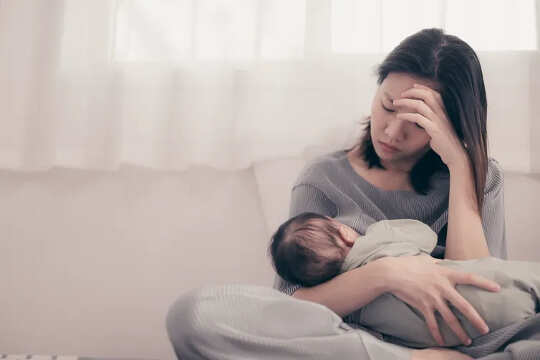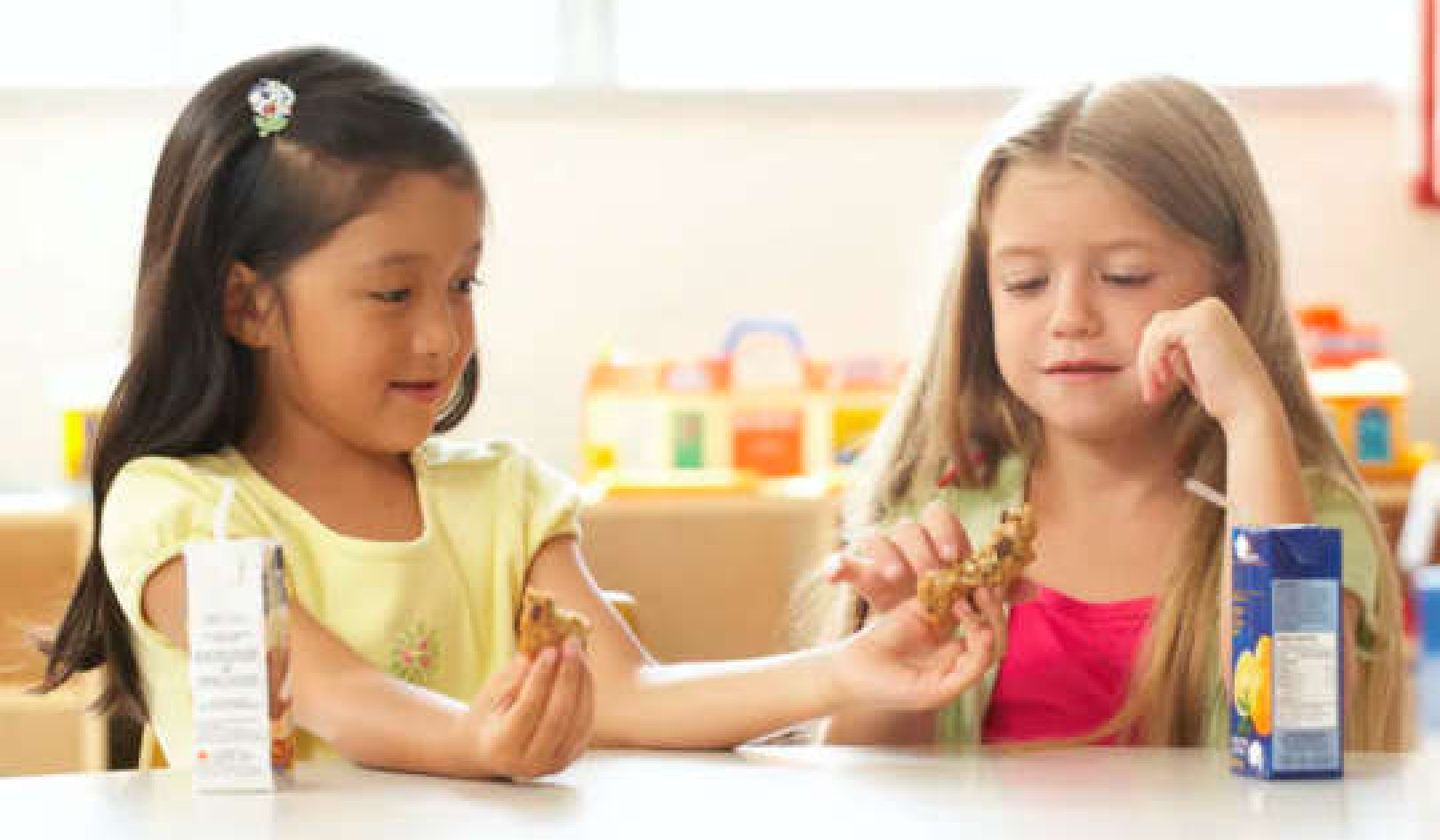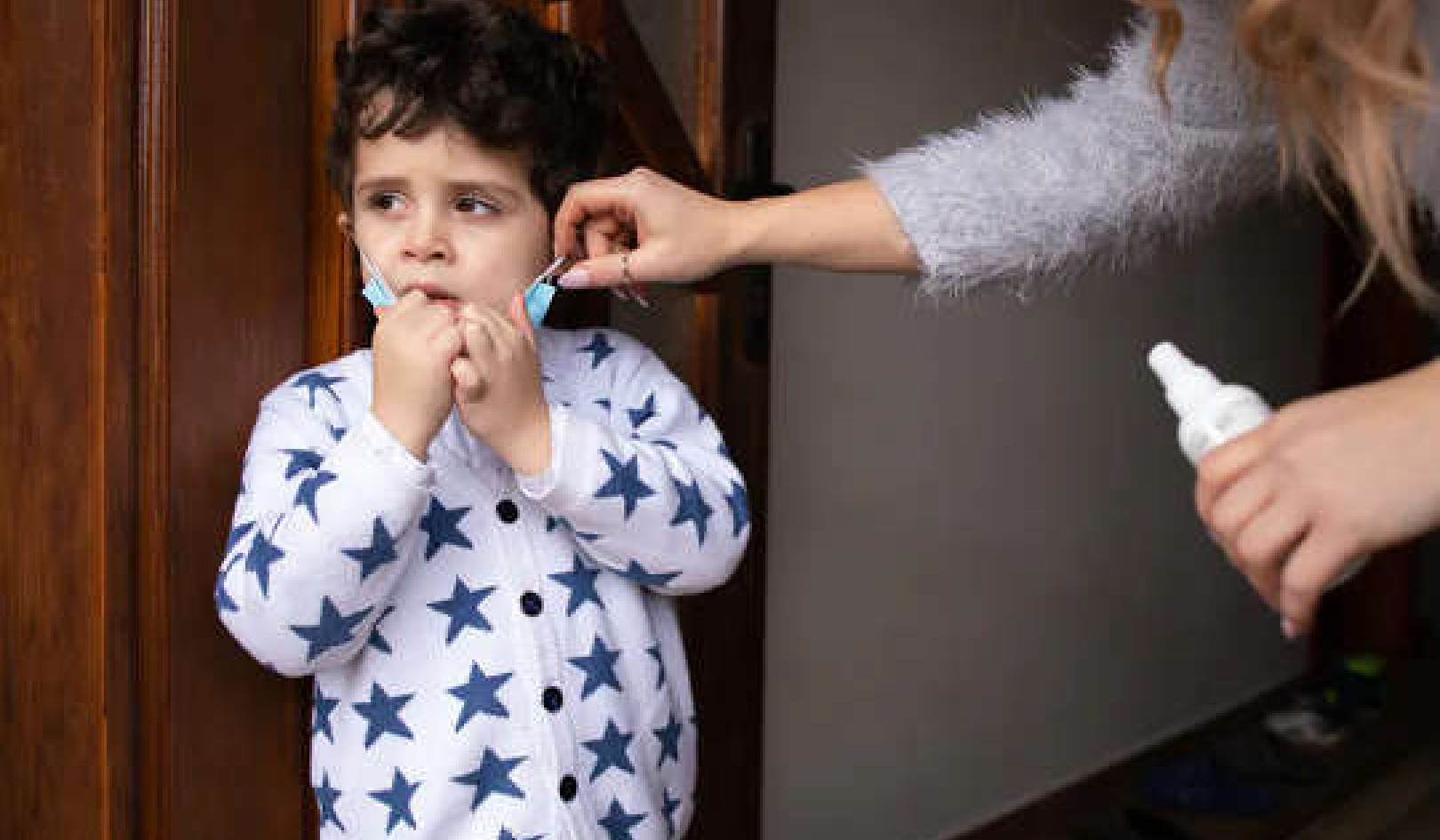Having a baby is often a source of great happiness, but not always. Many new mothers experience mental disorders, and this can be an extremely distressing and stigmatising experience.
Sometimes when new mothers experience mental disorders, it leads to feelings of guilt about being “a failure” and the development of (usually unfounded) worries that it might lead to removal of the child. This may relate to the idealisation of motherhood in society; that there has arguably become an expectation that women experience “uninterrupted joy and rewarding sacrifice”.
And while there is not yet enough research on the impact of COVID-19 on maternal mental health, many aspects of the pandemic – such as social isolation, reduced face-to-face healthcare, worry over infection – may have made the last year particularly hard for new mothers.
Perinatal depression
Mental disorders during pregnancy or the year following childbirth – which together are known as “perinatal” mental disorders – affect around one in five women. In fact, those mental disorders that don’t involve symptoms of psychosis are one of the most common of all possible complications of childbearing.
The most common mental disorder childbearing women experience is depression, often with anxiety. Despite the common societal notions about motherhood, the evidence suggests that childbearing is not protective against depression. At any point during pregnancy and the first three months after birth, around one in ten women will experience it.
Although the term “postnatal depression” has become increasingly familiar over recent years, around a third of cases start in pregnancy. Of women depressed in pregnancy, around a third will have been depressed before they got pregnant.
No matter what lockdown measures are in place, it is vital that new and expectant mums across the UK receive the #PerinatalMentalHealth care they need.
— Maternal Mental Health Alliance (@MMHAlliance) January 5, 2021
This means protecting existing services and urgently addressing gaps: https://t.co/cbUNZ5kMPt#PleaToPLAN #EveryonesBusiness pic.twitter.com/mxBbPnH415
There is no single cause for perinatal depression. Many factors are thought to contribute but the pathways are not fully understood.
The major psychological contributor is a prior history of depression. The biggest social contributors are experiencing domestic violence, low socioeconomic status and major negative life events. Biologically, women with genetic predisposition, chronic physical illness and more children appear to be at higher risk as well.
Aside from the distress of depression itself, untreated persistent depression can be associated with long-term implications for the physical, emotional and cognitive development of the child, although these effects are not inevitable.
Although rare, suicide among new mothers is a leading cause of death in the year following childbirth, particularly among women who are experiencing mental illness.
Despite this, it is important to note that most current evidence is based on data that wasn’t collected by following women and children longitudinally over time, so inferring cause and effect is difficult. The mechanisms of any link between perinatal depression and child development are poorly understood. The idea that a woman’s behaviour may negatively impact her child has been highlighted as a facet of “mother blaming culture” – the pathways involved are of course far more complex.
What can be done?
Depression is a treatable condition. The first step is recognising the problem. This can be hard, especially given the stigma still attached to pregnancy-related mental disorders. NHS England is currently rolling out £365 million of funding to expand perinatal mental health services across the UK, which will help many more women access support.
Depending on the severity of the depression, the impact on the woman and her treatment preferences, there are a range of treatment options that can be tailored to suit each person. These include guided self-help resources and talking therapies. Decisions around medication must be individualised and the risks and benefits carefully balanced. Care can be managed by a woman’s GP or, in more severe or complex cases, she can be referred to a specialist mental health service.
There is also increasing understanding of the role of partners in relation to maternal mental health and the mental health of partners themselves. The overall prevalence of depression in fathers is estimated to be around 8%-10%.
 New fathers also experience depression but are often stigmatised for doing so. Lopolo/Shutterstock.com
New fathers also experience depression but are often stigmatised for doing so. Lopolo/Shutterstock.com
Despite this, fathers often experience stigma and lack of access to mental health support. Similar to depression among new mothers, research shows depression in the months following childbirth can also impact on father-infant interactions and child development.
Conversely, increased social support and paternal involvement has been associated with reduced maternal depression and a positive impact on child development. This points to an increasing understanding of the importance of a whole family approach to supporting those with perinatal mental disorders, as well improving support and interventions for partners experiencing depression related to childbirth. The needs of same-sex parents must also be recognised.
Depression around the time of childbirth can be a common experience for new mothers, and although often overlooked, partners can also experience depression during this time too. Evidence-based treatments exist and improving early access to support for new families is paramount if the longer-term mental health and wellbeing of new parents and families is to improve.
About the Authors
Karyn Ayre, NIHR Doctoral Research Fellow, King's College London and Abigail Easter, Senior Research Fellow in Women's Mental Health, King's College London
This article is republished from The Conversation under a Creative Commons license. Read the original article.

Related Books:
Here are 5 non-fiction books on parenting that are currently Best Sellers on Amazon.com:The Whole-Brain Child: 12 Revolutionary Strategies to Nurture Your Child's Developing Mind
by Daniel J. Siegel and Tina Payne Bryson
This book provides practical strategies for parents to help their children develop emotional intelligence, self-regulation, and resilience using insights from neuroscience.
Click for more info or to order
No-Drama Discipline: The Whole-Brain Way to Calm the Chaos and Nurture Your Child's Developing Mind
by Daniel J. Siegel and Tina Payne Bryson
The authors of The Whole-Brain Child offer guidance for parents to discipline their children in a way that promotes emotional regulation, problem-solving, and empathy.
Click for more info or to order
How to Talk So Kids Will Listen & Listen So Kids Will Talk
by Adele Faber and Elaine Mazlish
This classic book provides practical communication techniques for parents to connect with their children and foster cooperation and respect.
Click for more info or to order
The Montessori Toddler: A Parent's Guide to Raising a Curious and Responsible Human Being
by Simone Davies
This guide offers insights and strategies for parents to implement Montessori principles at home and foster their toddler's natural curiosity, independence, and love of learning.
Click for more info or to order
Peaceful Parent, Happy Kids: How to Stop Yelling and Start Connecting
by Dr. Laura Markham
This book offers practical guidance for parents to shift their mindset and communication style to foster connection, empathy, and cooperation with their children.
























